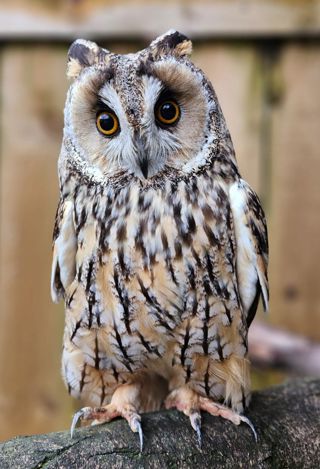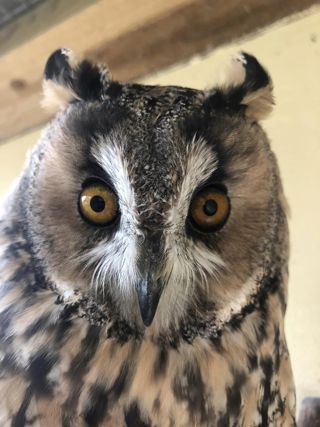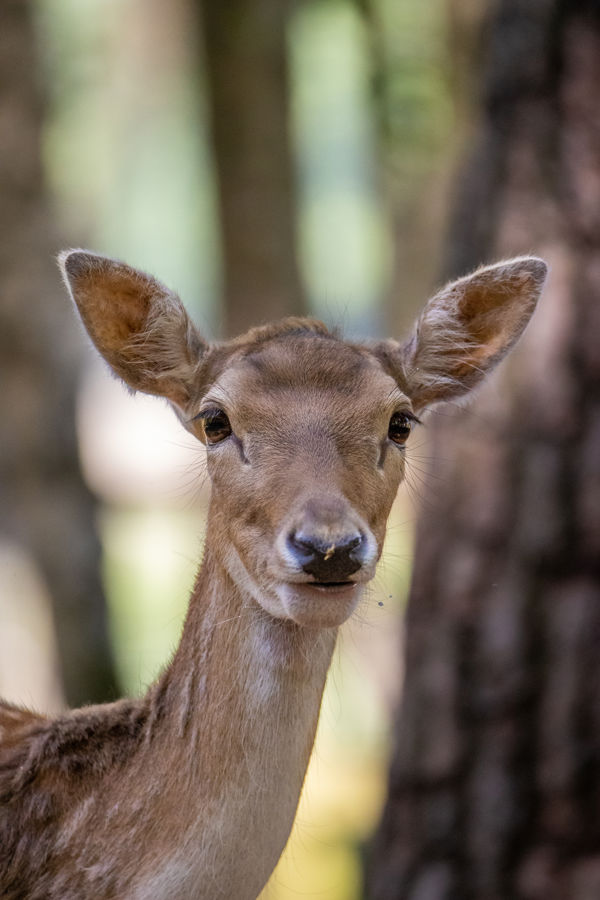Long-Eared Owl

General information
This owl is of smaller size with orange eyes and long tufts on top of the head. These are not actually part of the owl's ears despite their name and the common misuse of the phrase 'ear tufts' when describing the feather tufts of owls. They are actually better described as more like expressive eyebrows!
The Long-eared Owl is thinly spread throughout the UK and is seldom spotted due to its incredibly camouflaged plumage. Their population is approximately 1,800-6,000 pairs, however, this is a vast difference due to the declining numbers. The main issue, as for much of our birds of prey in the UK, is road traffic, deforestation and habitat loss and use of pesticides and rodenticides.
It is mainly a crepuscular bird hunting for small mammals, in particular, mice and voles.
The breeding season begins from February onwards and the pair will choose to nest in conifer trees, using a hollow or old disused nest. The female will lay 2 to 10 eggs with a 1 to 2 day interval.
The male feeds the female as she incubates the eggs for 25 to 30 days. By the end of August the young are independent of the parents but are not sexually mature until the end of their first year.

Latin name - Asio otus
Class - Aves
Order - Strigiformes
Family - Strigidae
IUCN Status - Least concern
Habitat - Forest, Shrublands, Grasslands and inland wetlands
Distribution - Across Eurasia & North America
Lifespan
4 years in the wild. 10 years in captivity
Threats
Vehicle collisions, deforestation, habitat loss and use of pesticides and rodenticides.
Fun Fact
Unusual call – a haunting deep hoot repeated every 2 to 3 seconds. Up to 200 vocalisations have been recorded for this amazingly elusive owl!
Our Resident
We currently have one Long Eared Owl called Twil in the first aviary near the Gift Shop.
She was hatched in April 2017 at the British Wildlife Centre in Surrey, joining us in June 2017. Twil is a delightful little character and often rather cheeky at weighing time for the Keepers!

Sign up to our newsletter
Join our mailing list in order to keep up to date with park news and special offers.




